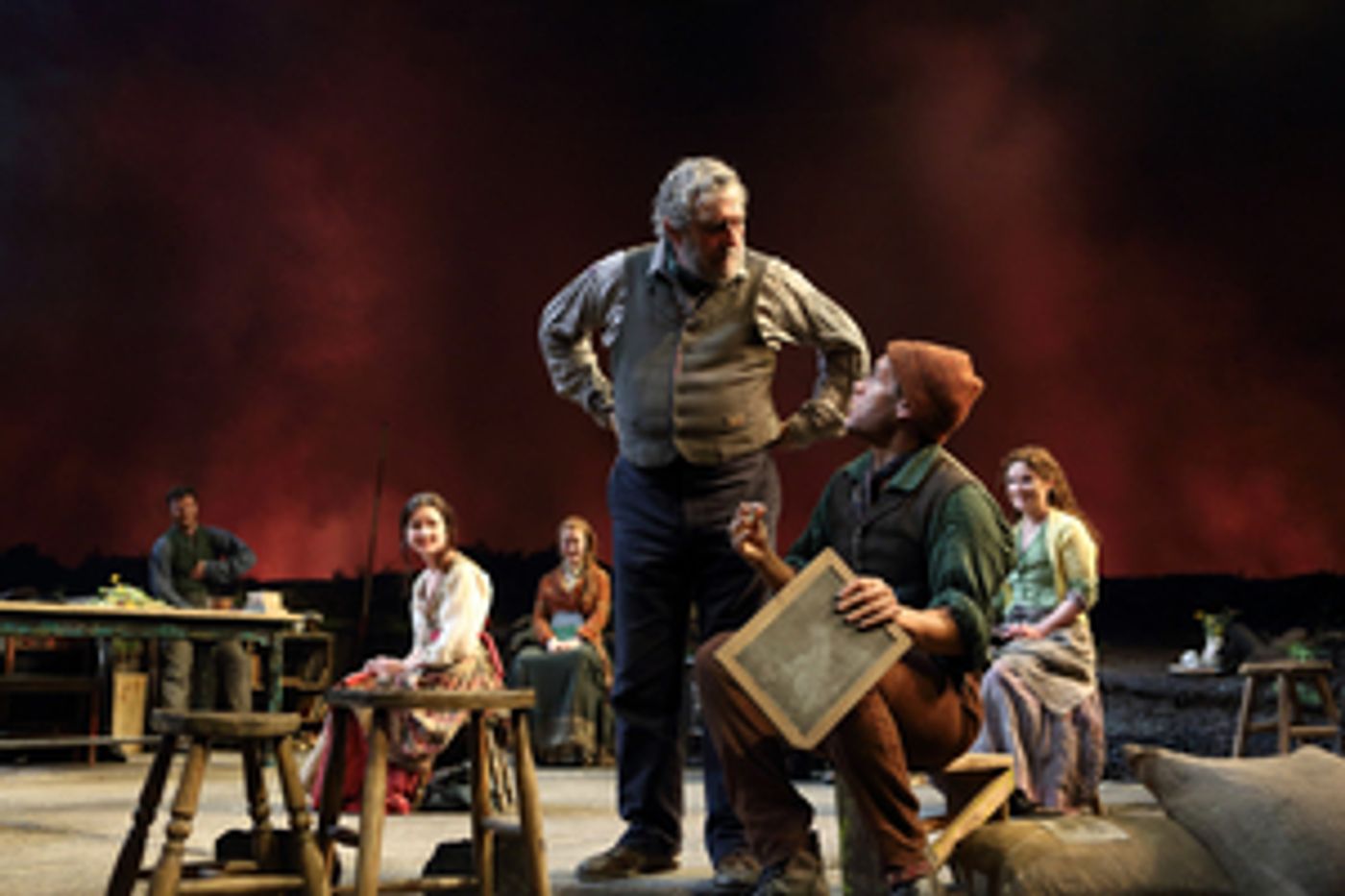Review: TRANSLATIONS, National Theatre

![]() If theatre is your mistress, as it is mine, there's an abiding hunger to see shows that make you feel - and I can't put it more eloquently than this - 'all fluttery inside'. It's the risk of such a sempiternal deal that this feeling doesn't happen so often. But we persist in our quest.
If theatre is your mistress, as it is mine, there's an abiding hunger to see shows that make you feel - and I can't put it more eloquently than this - 'all fluttery inside'. It's the risk of such a sempiternal deal that this feeling doesn't happen so often. But we persist in our quest.
Brian Friel's Translations, now nearly 40 years old, captures the best of humanity whilst avoiding even a teaspoon of sickly romanticism. Set in a hedge school in rural Ireland in the 1830s, it stars the handful of locals that make up its class, and its master, Hugh, who is fluent in Greek, Latin, and the tales of classical mythology, but less so in the topography of the world outside of this microcosm.
Friel's dialogue captures the essence of each character with sublime brevity, with Ian Rickson's direction filling the gaps, and each actor eliciting every ounce of chemistry from every interaction.
There's a giddy camaraderie, upheld by the effervescent mischief of Doalty (Julian Moore-Cook), who enjoys a passing flirt with Bridget (Amy Molloy), who wants not a hair out of place before class. She shows the same care for Sarah (Liadán Dunlea), who has missed a section out of her plait.
Jimmy Jack Cassie (Dermot Crowley) speaks in delicious anecdotes of myths and legends, and has a craving for companionship barely dressed up as an infatuation with the god Athene. All uphold a lightly worn fear of the perpetually tipsy, but erudite, schoolmaster, Hugh, played with deep intensity by Ciarán Hinds.
The first half leaves a breadcrumb trail of the best of community spirit: the hierarchies, the romances, the mundanities. The arrival of British soldiers who will Anglicise the place names in an Ordnance Survey expedition begin to threaten their language and, as a result, their history.
But Friel's play does not tackle politics with a heavy hand. It's infuriating to see another of Britain's arrogant legacies unfold, but the playwright doesn't let the nuance slip even for a minute. Lieutenant Yolland's (played the vibrantly enthused Jack Bardoe) infatuation with the beautiful rural landscape - and its language - imparts an unquenchable enthusiasm that saturates the auditorium.
It's mirrored by linguaphile Owen, played by Fra Fee, who left Ballybeg, Donegal, to learn "The King's English". As the two excavate the oral histories that are preserved by place names, the universality that the play so delicately embodies becomes stark. Fee's performance is remarkable, finding the right balance of low-level torment as he translates, and mediates, between the locals and the British army.
The cavernous Olivier theatre often risks swallowing a production whole, but Rae Smith's earthy set - more rolling mud than rolling hills - creates an intimacy that might only have been a pipe dream for such a vast space. Stephen Warbeck's soundscape, full of strings, is foreboding. It only ever kisses the production with its unsettling sound. It's sparsely deployed, delicately threatening.
Friel properly abandons the heavenly 'feels' in the second half. I'm conflicted on whether this is an act of genius or a disappointment. It's a necessary departure, perhaps, to capture the ominous intention of the British military, which inevitably threatens more than the place names of Ballybeg. But if I could bottle its conflicted euphoria, the potted pathos, of that first hour, I would.
Translations at The National Theatre until 18 December
Photo by Catherine Ashmore
Reader Reviews
Videos

